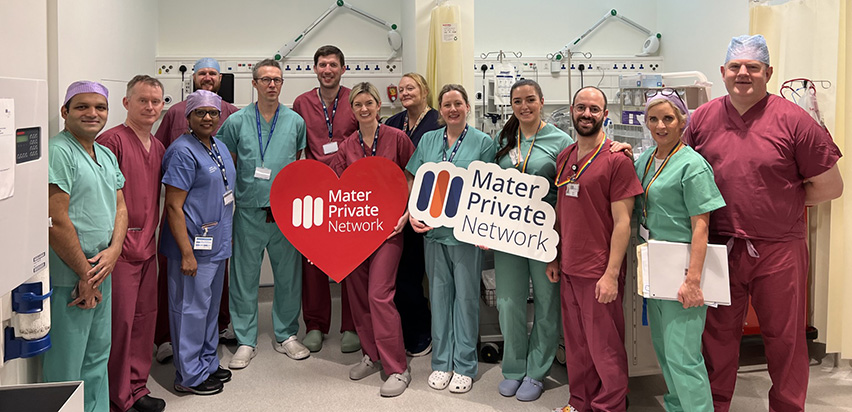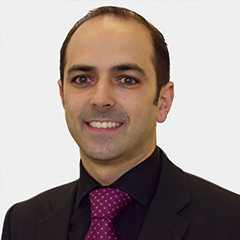Breast Augmentation
Contact Us
Request an AppointmentPlease note that a referral letter is not required to make an appointment.
Please note that a referral letter is required before an appointment can be confirmed.
About our services
Breast augmentation uses implants to enhance breast size and shape. You may choose to undergo breast augmentation in order to:
- Enhance smaller breasts
- Lift a sagging bustline
- Create a more symmetrical breast
- Enhance the breast following pregnancy
- Enable reconstruction following breast removal or mastectomy
.jpg?sfvrsn=583ef9a2_0)
We offer only a consultant-led service to ensure you not only receive the best expertise and experience but that you also have all the clinical care and backup needed. If you decide to go ahead, a specialist pain nurse is also involved in your care to help manage pain while in hospital and following your discharge.
Before deciding to undergo breast augmentation, you will have a detailed consultation with the plastic or breast surgeon. This consultation is extremely important in establishing your expectations and how we can achieve them. This is to ensure we achieve the best outcome for you aesthetically and clinically.
Commonly used implants are either round or “teardrop” in shape. Both saline and silicone implants can be used, however in modern practice silicone is preferred as it has more durable long-term results.
Irrespective of the reasons for deciding to undergo breast augmentation surgery, creating the desired appearance, symmetry and balance that you are looking to achieve with natural-looking results, is what we aim to deliver.
If you have decided to go ahead with breast augmentation, your breast surgeon will take you through what to expect and any specific instructions.
For two weeks before surgery it is important to avoid aspirin or non-steroidal anti-inflammatory drugs such as ibuprofen (Brufen/Nurofen) and diclofenac (Voltarol). These drugs reduce the ability of the blood to clot and can make bleeding more of a problem during and after surgery.
Smoking can increase the likelihood of wound problems and abstaining from smoking for at least two weeks before and after surgery is a sensible precaution.
- On the morning of your procedure, you will meet with your surgeon who will discuss the procedure and answer any questions you may have. There will be marks drawn on your skin to help with procedure. These will wash off.
- You will also meet with the anaesthetist who will talk you through the anaesthetic. The procedure takes place under general anaesthetic so you will be asleep and local anaesthetic will be given to reduce any post-operative discomfort.
- When you are ready, you will be taken to the theatre where your procedure will take place. You will be in theatre for approximately one hour.
- A small incision (four to six centimetres) is made under the breast and the implant is placed either under the breast or under the muscle of the chest wall. Your surgeon will decide which is the best option for you; neither site is best but under the muscle seems to provide better long term results.
- The surgeon creates a “pocket” precisely tailored to the shape and size of the breast implant. The implants are placed in the pocket and adjusted to the required shape. A supportive dressing is placed over the breasts and you are returned to recovery.
- Pain relief medication will be arranged to ensure that you are in minimal pain. You will be monitored on the ward until you are ready to be discharged later that day.
It is important to rest, avoid strenuous activity and wear a support bra for six weeks.
Your breast augmentation procedure will be performed by an experienced surgeon who works to achieve good results with a rapid recovery. However, as with any surgical procedure there is a small risk of complications including the following:
Unfavourable scars
Some form of scar will always be present and most patients find that the scars settle well in time. In some patients, scars can be thicker or raised. In most cases, these settle spontaneously but occasionally other measures to improve the scar may be necessary.
Infection
Infection is rare in this type of surgery and the risk is minimised by careful surgical technique. You will receive antibiotics before and after surgery to further reduce the risk. Where infection affects the implant (perhaps 1% of cases) it may be necessary to remove the implant to allow the infection to clear.
Nipple sensation
Many people find that there is some change in nipple and breast sensation after breast augmentation. A minority find sensation is reduced, though this tends to improve with time.
Asymmetry
Most women have a degree of asymmetry between the breasts prior to surgery. Breast augmentation may emphasise differences and some minor differences are always likely to be present.
Capsular contracture
The body naturally makes a scar around any implanted material. For the vast majority this scar is soft and cannot be felt but for a small minority, a thicker scar can develop. This may require further treatment or removal of the implant.
Leakage of silicone
Modern implants often contain firm (“cohesive”) silicone gel, similar to a set jelly, which has a lower likelihood of leaking from its original position. Older implants contained very runny, liquid silicone which could leak if the implant shell developed a small hole or crack. The liquid would usually be retained within the 'capsular contracture'.
Haematoma
Rarely, small blood vessels in the wound may bleed after the surgery, leading to a collection of blood under the wound (a haematoma). This will need to be released and washed out before resuturing (stitching) the wound. If this problem arises, it is typically on the day of surgery and does not affect the final result.
Chest infection and DVT
Any surgery carried out under general anaesthetic carries a small risk of post-operative chest infection, particularly in smokers, and of thrombosis of the leg veins (DVT) and the concomitant risk of clot moving to the lung (embolism). Patients wear protective stockings during and after surgery to help minimise the risk of DVT and embolism. Early mobilisation after surgery is an excellent way of reducing the risk. We also use a compressive massaging device on the calf muscles in theatre to further reduce the small risk of this complication.
Are breast implants safe?
Breast implants have been used for over 30 years and have a very good safety record. About 10 years ago concerns were raised regarding the use of silicone breast implants. Several very large studies involving many women with and without breast implants have led to the conclusion that these fears were unfounded. You can discuss this with your surgeon during your consultation.
Will there be scars?
There are a number of different surgical approaches and any scar depends on the approach used. For many, there is a small scar just below the crease under the breast. Depending on what works best for you, we will discuss the possibility of scars at your consultation. In the vast majority of patients these scars fade well over the months following surgery.
Is the surgery painful?
Some discomfort is inevitable. Pain is a little more pronounced in patients who have implants placed below the muscle. Discomfort is usually well controlled by our experienced consultant anaesthetists. On discharge home, we will advise you on what types of pain killers to use.
What follow-up is there?
Your surgeon will arrange a follow-up appointment post-procedure to check that you are recovering well and to reduce the number of dressings in place. Dissolving stitches are used so you should not need to have any stitches removed. A second appointment a week later is required to remove the remaining dressings and to check your progress. A final follow-up appointment is planned around three months after surgery. In the unlikely event that you require emergency care at any time following your procedure, our surgeons can be contacted through Mater Private Hospital on 1800 12 34 56.
How long before I get back to normal?
Most patients find they are able to resume normal activities over a one to two week period. However, sports bras must be worn day and night for a period of six weeks.
How quickly will I recover?
If all goes to plan, normal activities can be resumed by about two weeks after surgery and most patients are back at work about a week later. Vigorous sporting activities and gym work are probably best left until four to six weeks after surgery.
Can I breastfeed after breast enlargement?
Breast implants do not seem to significantly reduce the likelihood of successful breastfeeding.
Can I have a mammogram after I’ve had breast implants?
Yes. Breast implants can make taking mammograms more difficult so it is important to tell the radiographer that you have implants. Special positions can be used to make sure they get the best mammogram.
How long do breast implants last for?
The manufacturers suggest that implants will last more than ten years on average and it is probably true that high-quality modern implants may have an even longer lifespan. The implants will, however, almost certainly need to be replaced or removed at some point in the future. This can be discussed at your consultation.
Our team
Breast augmentation or enlargement is one of the most common cosmetic surgery procedures performed. For many, the choice of an experienced surgeon, is hugely important. Achieving the look you expect from your breast implants is our goal.
Our surgeons have extensive experience in breast surgery, including aesthetic surgery, cosmesis, reconstruction and revision. This includes specific training in breast augmentation surgery, in addition to training in breast cancer surgery and breast reconstruction surgery. They are also regularly consulted for second opinion by patients requiring revision following previous breast surgery.










/mr.-mitchel-barry-.png?sfvrsn=d438210d_1)
/mr.-kevin-cronin.png?sfvrsn=6a10c885_1)
/mr.-richard-hanson-.png?sfvrsn=a298f45c_1)
/prof.-malcom-kell.png?sfvrsn=43e38f38_1)

